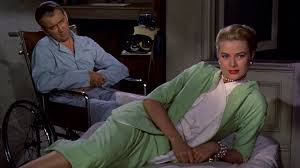Kammerat Napoleon
”All
animals are equal, but some animals are more equal than others”
Ain’t that
the truth…
More and
more frequently do I now encounter movies that I not only know of, but have also
seen. “Animal Farm” is another one of those. I saw it back in high school in an
English class and I figure that though it was an easier treat than George
Orwell’s novel, it did make a big impression on me back then. The thing is this
movies plays a very nasty trick. It lures you into thinking this is a classic
Disney-ish feel-good cartoon and then turns the whole lot very dark and bad.
Even as an adolescent you are not above feeling that hammer slamming you to the
ground. Oh, I think that English teacher enjoyed that very much, he did have a
wicked sense of humor.
“Animal
Farm” is a British cartoon feature from the Halas and Batchelor studio about
how the animals at Manor Farm kicks out the farmer and takes over the farm for
themselves as a commune. This part is very happy and uplifting with Disney
elements like the little clumsy duckling and the animals farming in their own
quirky ways. Halfway in however the pigs who led the rebellion form a new
ruling class, which is at first kind of sweet, but soon turn sinister and
menacing when the pig Napoleon takes control using loyal dogs as power leverage
and send them off to chase down and kill the rival Snowball. Goodbye Disney and
goodbye kiddies, I do not think this is a movie for you.
As
Napoleon’s rule turn more and more oppressive colors become dark and grayish
and gone is any vestige of the previous optimism. This reaches a climax when
the big horse Boxer, who was instrumental in practically all physical labor on
the farm is sold to a glue factory for whiskey to the pigs. When the other
animals thus learns that the pigs have become essentially human and more equal
than others they rebel, but this time not in happy optimism, but in furious
anger.
It is no
secret that Orwell’s story is about the Russian revolution and the rise of
Stalin. The movie was even intentionally funded as propaganda against the East
bloc. The interesting thing here is how detailed and honest it is. A pure
propaganda stunt would be very black and white with no redeeming elements to
the opposition. Animal Farm is certainly painting a dark picture of Stalin, but
it is actually all for the revolution itself. Farmer Jones (the tsar) had it
coming with his mismanagement and brutality. The communist manifest is
celebrated as a solution and Lenin as the old hog Old Major is a benign
character. When the animal fight off the farmers trying to take the farm back
(the White alliance) the animal are heroic, even the pigs, and the animals
vigor in farming reflect the creative burst the Soviet union went through in
the twenties, symbolized by Snowball (Trotsky). This is all very impressive of
a film against communism to say that the people are all right and the idea is
good.
Then the
page turn and we see the two main points of the movie:
- That such an egalitarian society is a fantasy, that someone will eventually rise to dominate the rest, but by claiming to represent the people effectively gag the opposition
- That Stalin is an evil power monger who used his tools of strength to secure a power base to exploit his people.
When the
farmers attack again (the German invasion in 41) the animals are still heroic,
but lead not by joy and optimism but by the force of a tyrant.
One by one
all the things the animals fought for are gone. There is little food and no
protection. Their ideals written on the barn disappears or ring more and more hollow
the same way as communism devolved into an oppressive system to support the
power elite.
Although
this is a blatant propaganda piece it is also scary how spot on it is. In 54
this may have felt like an exaggeration, but with our advantage of hindsight we
can tell that the producers were not far off the mark. Halas was a Hungarian
and he would therefore have some first or second hand experience with Stalinism
and while the upbeat ending can be interpreted as a last ditch effort at crowd
pleasing, it is also likely that Halas and sponsors hoped that the people of
the East bloc would find inspiration to rebel. The Hungarians did indeed do so
a few years later and the Czech again in 68, but it would take 35 before the
prediction of the movie became reality with a literal breaking of the wall.
Incidentally this may have been why our English teacher made us watch it back
in 1990.
While “Animal
Farm” is decidedly not a children’s movie I do consider it both an important
film and a very clever one. It grabs the attention of the audience and then
twitches you around and forces you to see the awful truth as the producers sees
it. It has an uncanny ability to force home its points and even if you disagree
with those you have to admit that it is effective.


